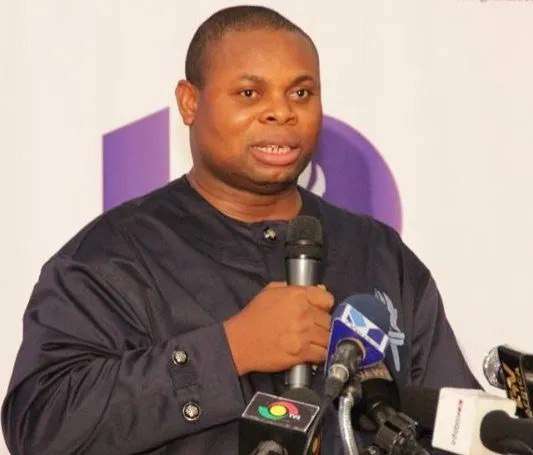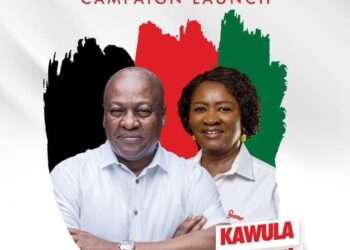The President of IMANI Africa, Franklin Cudjoe has stated that the COVID-19 pandemic and the Russia-Ukraine war played a minute role, 20% maximum, in Ghana’s economic recession. He asserted that 80% of Ghana’s economic challenges are solely due to the government’s mismanagement of the economy.
He indicated that Ghana’s involvement in an International Monetary Fund (IMF) Program is proof of a mismanaged economy. He specified that Ghana’s inflation rate is currently about 23.5% a reduction from 54% in late 2023, which made it the third highest in Africa. He noted that the interest rates are double digits between 30%-40%.
“The currency waves like a flag and life generally has become…difficult. Everybody’s purchasing power has been rendered pretty useless. Taxes constitute if not 45%-50% of normal business operations, it’s just not…there’s no one can breathe as an entrepreneur. The barriers have been erected by the government against its people”.
Mr. Franklin Cudjoe
The President of IMANI Africa further accused the government of engaging in protectionism by extracting between 45% and 50% taxes from businesses. He emphasized that these taxes collected by the government are invested in areas of the economy where there is zero accountability. “Robbing people and putting it in an entity where you can virtually steal the money without accountability” he added.
Mr. Franklin Cudjoe indicated that to transition Ghana’s economy to the production of value-added products, the government must remove the barriers it imposes on local businesses and entrepreneurs. He asserted that Ghanaian businesses can only trade across borders if the cost of doing business is low, which unfortunately is not the case in Ghana.
The IMANI Africa boss argued that while Ghana’s interest rate is at a massive 40%, Nigeria does not have a dizzying interest rate for entrepreneurs, which is a step in the right direction. He stressed that due to high tax values and skyrocketing interest rates, Ghanaian goods are unable to compete with other goods on the market because Ghanaian goods are relatively expensive compared to other goods.
“So the barrier is not just having government reduce trade barriers per se as in all these tariffs and all of that, but it begins with our local our governments themselves (internal government) actually doing a lot more of the work”.
Mr. Franklin Cudjoe
What IMANI Represents
Mr. Franklin Cudjoe disclosed that the libertarian market ideas on which IMANI Africa was instituted were based on pre-colonial African trade. He indicated that there was some form of free trade and borderless states within Africa before the inception of colonialism.
He specified that the aim of the think-tank, IMANI Africa, is to provide an open market with limited government interference guided by the rule of law which will translate into the development of the African. He stressed that these ideas are original to Africa and not adopted from the West.
Moreover, he stated that IMANI Africa conducts policy analysis based on budget and macroeconomic analysis and indicated that the institution, IMANI Africa, subjects government projects and policies to Basic value-for-money analysis.
He stressed that this analysis is to point out to governments what they can achieve in certain sectors without investing a lot into that sector and saving costs with special emphasis on taxes, trade, healthcare, and recently value chain for certain commodities like cocoa.
“The IETP certainly believes in free trade, we thought that anywhere trade is being hampered deliberately we need to…talk about it. The IETP got involved…we had a story that we shared with them, Ghanaian traders…those who trade in imported goods were saying that the Nigerians should get out of the market because Nigerians were too much competition”.
Mr. Franklin Cudjoe
Accordingly, the President of IMANI Africa disclosed that its collaboration with the IETP (Investisseurs et Partenaires) ensured that business returned to normal. “We told them that the government was their sole predicament and Nigerians could borrow at a competitive interest rate and trade across the borders” he stated.
The think-tank, IMANI Africa, has built a reputation for itself in Ghana’s policy environment for putting out objective, independent analyses and critiques on issues relating to governance, economy, and local trade. The policy think-tank aims at shaping national, regional, and global agendas to improve the participation of ordinary people in governance.
READ ALSO: The Raging Anti-LGBTQ Bill Debate





















